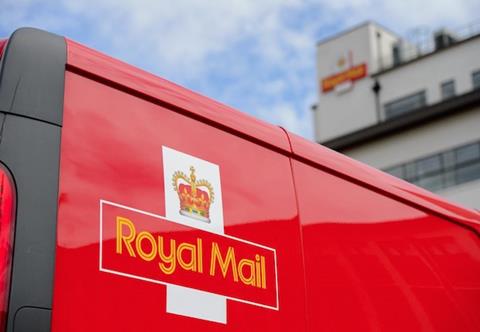
Royal Mail has launched a consultation on the proposed closure of its defined benefit (DB) pension scheme to future accrual.
The consultation, which launched yesterday (Thursday 5 January 2017), will run until 10 March 2017. It will involve approximately 90,000 members of the organisation’s DB pension scheme.
The consultation with members forms part of the organisation's 2018 pension review process, which includes ongoing discussions with unions about potential changes to the scheme.
Royal Mail has proposed that DB pension scheme members will be able to continue to build benefits in their DB pension plans until 31 March 2018. After this date, members would be moved to a defined contribution (DC) arrangement, either as a new section of the DB plan or by joining the Royal Mail DC pension scheme.
On 31 March 2018, active members of the DB scheme would also receive a one-off £750 payment which could be contributed to their DC pension or taken as cash.
If this proposal is implemented, the organisation expects to pay around the same amount in pension contributions and national insurance contributions in 2018-2019 as it did in 2015-16.
The DB scheme is currently in surplus but Royal Mail expects this to run out in 2018. The organisation's contribution rate is set to rise from 17% of pensionable pay to more than 50%, increasing from £400 million a year to more than £1 billion after March 2018.
Royal Mail closed its DB pension scheme to new members in April 2008.
More than 40,000 employees are members of Royal Mail's DC pension scheme.
No changes to the current DB pension arrangement will come into force before April 2018.
Jon Millidge, group HR director at Royal Mail, said: “We know how important pension benefits are to our people. We are sorry that their current arrangements will soon not be affordable. We believe our proposal would be a fair outcome; it is the best option available.
“It is a very competitive pension package compared to the industry and other large employers. It is about continuing to provide sustainable, good quality pension benefits and as many high quality jobs as possible. We will carefully consider all viable options put forward by members or their representatives.”
Brian Scott, officer for the Royal Mail at Unite, said: “This is a cause for concern to Unite and we will be looking to mitigate the impact of any proposed changes during and after the consultation process. We will also be strongly encouraging our members to participate in the consultation process.
“The consultation is complex and the [organisation] needs to ensure that its employees, our members, clearly understand the potential impact on them, and the reasons and justifications for the proposed changes. It is too early to make any pronouncements on industrial action, but if the [organisation] does not respond positively on this and other issues we cannot rule this out.”
Charles Cowling, director at JLT Employee Benefits, added: “The loss of defined benefit pension provision at the Royal Mail represents a significant milestone towards the extinction of this type of employee benefits. As the third largest provider of final salary pensions in the FTSE 100, Royal Mail represents one of the largest private sector employers to succumb to the untenable pressure of running those schemes.
“Although deeply regrettable, this is not a surprise as the closure had been discussed for some time. Spiralling costs and ever challenging pension legislation have for many years driven the private sector to close their DB pension schemes. We have now reached a point where even the largest private sector employers are following this trend. Very soon final salary pensions will become an exclusive benefit only available to public sector employees.”











